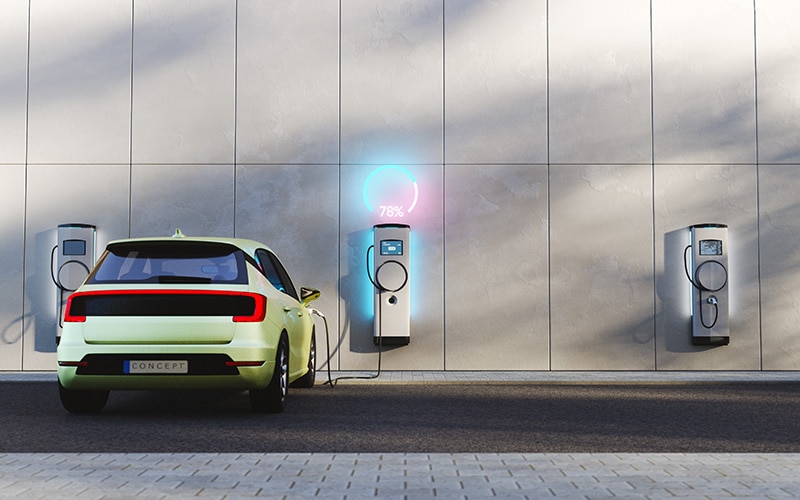A new type of metal theft is on the rise.
Across the country, thieves are stealing cables from electric vehicle charging stations. The EV charging station cables are filled with copper and as copper prices have risen, so has the theft of these cables.
The Associated Press (AP) reported earlier this year that these thefts have become a troubling pattern across the country, with copper near a record high price. The stolen cables will disable an entire charging station, sending EV owners to search for working chargers.
According to Electrify America, provider of direct-current fast chargers, two years ago a cable might be cut one time every six months at one of its 968 stations, supplying over 4,000 chargers. Through May of this year, the company says it now has had 129 cables cut, surpassing the total for all of 2023. At one Seattle station, cables have been cut six times in the past year.
Two other charging station companies, FLO and EVgo, report a similar rise. Those companies say Seattle is the most frequent target, but cables have also been stolen in Nevada, California, Arizona, Colorado, Illinois, Oregon, Tennessee, Texas and Pennsylvania. Stations run by Tesla report a similar increase, especially in Seattle, Oakland, and Houston.
In Houston this spring the police metal theft unit reported that 18 out of 19 cables at a Tesla station were cut. The problem is not unique to urban areas, though, authorities report. Rural areas like Sumner, Washington, have had cables cut twice at the Puget Sound Energy charging station, according to reports.
There is not a huge amount of copper in each cable and the copper is hard to extract, according to manufacturers. Police estimate that thieves will get about $20 for a cable, but if they cut 20 cables, that is worth about $400. While cutting the cables might sound dangerous, charging station manufacturers say if the cables are not plugged into a car there is no danger in cutting them. Security cameras that have recorded these thefts show that cutting and stealing a cable takes as little as two and a half minutes.
While thieves may make $20 per cable, charging stations face a huge expense to replace them. In Minneapolis, cables cut at a city-owned charging station cost $1,000 a piece to replace, the city Department of Public Works reported to AP. In addition to the cost of replacing the cables, charging stations are now investing in more security cameras. Charging stations typically are situated in the remote back corners of parking lots where there is little traffic, so many more security cameras are needed, authorities say.
After the Houston thefts earlier this year, police there have been visiting recycling centers to look for stolen metal, AP reports. As scrap metal recyclers know, it is almost impossible to determine if copper cables came from a charging station, since thieves burn off the insulation and sell the unmarked strands of metal.
The Recycled Materials Association (ReMA), formerly the Institute of Scrap Recycling Industries (ISRI), is issuing scrap theft alerts from law enforcement officials to all its members so scrap yards can be on the lookout for suspects and stolen goods.
For now, much of the theft has been from charging stations, but authorities say there have been some cables stolen from private residences and that more theft from individuals who charge their car at home could be on the rise next.
About ScrapWare Corporation: Since 1989, Rockville, Maryland-based ScrapWare Corporation has been the software of choice for the recycling industry. Its ease of installation and simplicity saves users time and money while helping them achieve compliance and maintain accurate business insights. With state-of-the-art functionality tailored to each organization’s unique requirements, ScrapWare is an advanced dynamic software solution that alleviates the most pressing recycling industry worries. For more information, please call (301) 517-8500 or visit https://www.scrapware.com/.

